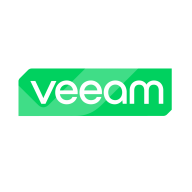

Acronis Disaster Recovery and Veeam Data Platform compete in the disaster recovery and data protection market. Veeam appears to have the upper hand due to its strong integration with virtual environments and rapid recovery capabilities, although Acronis is highlighted for its automation and management simplicity.
Features: Acronis offers automation, seamless data recovery, and hot restore, along with quarterly disaster testing. It is praised for its efficient data protection and backup capabilities across cloud platforms. Veeam stands out for its integration with virtual environments and instant recovery features. Users appreciate its backup replication and effective restore functionalities, including granular recoveries like Exchange explorations.
Room for Improvement: Acronis could improve real-time backup capabilities, testing documentation, and support for newer Linux versions. Its high cost and need for better cross-platform support are also mentioned. Veeam requires better integration with physical servers and more cost-effective backup options. Users desire improved licensing flexibility and backup support for non-VMware environments, alongside better support for legacy systems.
Ease of Deployment and Customer Service: Acronis is flexible across public, hybrid, and on-premises cloud setups, though support during outages needs improvement. Veeam is primarily used in on-premises environments and praised for its accessible and effective technical support, with fewer response time complaints compared to Acronis. Veeam's technical support is generally well-received, but users seek enhanced integration tools.
Pricing and ROI: Acronis is considered reasonably priced for its features but is criticized for recent price hikes and high regional costs. It provides a good return on investment through efficient recovery features. Veeam offers a competitive pricing structure with licensing benefits but faces criticism over increasing costs. Despite this, its strong enterprise backup features maintain its appeal as a reliable but sometimes costly solution.
My customers are finding value in Acronis Disaster Recovery, as they are happy with the tool and continue to use the services after facing many situations where they found it useful and got good returns on their investment.
Acronis regularly introduces new features to meet customer needs, which can lead to efficiencies.
A high-level technical team should be accessible swiftly to minimize customer downtime.
The technical support is reliable and efficient.
We face issues connecting with the account manager, which needs to be improved.
Most cases are handled perfectly.
I would rate their technical support a 10 out of 10.
The escalation from first, second to third tier is sometimes very long-lasting, but the resolve rate is quite high.
The scalability of Acronis Disaster Recovery is good, and I would rate it an eight out of ten.
It is easy to scale; you can directly add licenses for scalability.
It involves acquiring additional licenses as needed.
I would rate the scalability part of Veeam Data Platform 10 out of 10 because we have the ability to scale out the product at any time with scale-out backup repositories and can add licenses as needed.
In order to scale Veeam Data Platform, we have to pay a lot more money.
We have not experienced any downtime, bugs, or glitches.
There are no issues with stability in Veeam Data Platform.
I can say the stability of Veeam Data Platform is almost 8 to 9, as the cluster functionality was not there in earlier platforms such as version 12, but is provided in version 13.
They could also enhance endpoint security by integrating EDR within the security framework.
For the backup to compete in the enterprise market, there must be improvements.
If a server is completely offline and destroyed, the system should offer an intelligent response, providing options to start recovery without requiring manual intervention from engineers.
The improvement we would like to see is the option to scale Veeam Data up in smaller sections rather than large sections, which requires paying much more.
Reducing it by 20% would make it more accessible to a broader range of customers.
OpenStack is something Veeam Data Platform doesn't support, and they haven't indicated that they will support it in the future.
The pricing for Acronis products has increased by 10% to 15% over the past few years, making it challenging for existing customers to accommodate the rising costs annually.
Acronis Disaster Recovery is fairly priced.
The price for Acronis Disaster Recovery is fair from the perspective of features, but for Indian customers and in light of the competition, it would be better if the price were a little lower to pitch services more effectively.
I don't consider the price expensive given its importance.
A reduction of 20% in the current cost would make the solution more attractive to clients.
Veeam Data Platform is more expensive than OpenStack because we pay for it in US dollars, while we pay for OpenStack in Egyptian pounds.
The ability to automate the backup solution and recover entire mailboxes or even granular-level emails is very good for restoration and backup.
For data recovery, when we lose a server, we are able to restore it in place with the click of a button.
Backup is crucial as it allows data recovery.
The platform is user-friendly, comprehensive, and compatible with numerous market solutions, including virtualization and bare metal servers.
The most important aspect of this platform is data security with immutable data in the storage.
Veeam Data Platform is valuable for its stability and the ability to easily contact support for assistance.
| Product | Market Share (%) |
|---|---|
| Veeam Data Platform | 14.1% |
| Acronis Disaster Recovery | 1.3% |
| Other | 84.6% |

| Company Size | Count |
|---|---|
| Small Business | 13 |
| Midsize Enterprise | 1 |
| Large Enterprise | 3 |
| Company Size | Count |
|---|---|
| Small Business | 217 |
| Midsize Enterprise | 99 |
| Large Enterprise | 139 |
Acronis Disaster Recovery Service is a hybrid cloud, all-in-one, IT continuity solution that protects and restores your data and servers in the event of a natural or man-made disaster. Leveraging the power of the Acronis AnyData Engine, Acronis Disaster Recovery Service can reliably recover your servers or entire data centers without the need for you to invest in duplicate systems or additional staff.
Acronis Disaster Recovery Service can reliably recover your servers or entire data centers without the need for your organization to invest in duplicate systems or additional staff. Providing flexible recovery time objective (RTO) options, Acronis Disaster Recovery Service combines the high performance and shortest recovery time of a local appliance with the low cost, predictability, and accessibility of a virtual private cloud.
Veeam Data Platform is a leader in data resilience, providing businesses with reliable and secure backup, recovery, and advanced data insights. It is designed to combat today's cyber threats while ensuring data remains protected, adaptable, and recoverable.
Engineered to offer a seamless and powerful data resilience experience, Veeam Data Platform helps organizations with intelligent protection beyond just backup. It enables orchestrated and verifiable recovery processes, helping maintain continuous operations. By offering integrated solutions against evolving cyber threats, this platform assures businesses of data availability and precision restoration, empowering them to remain resilient under any circumstances. Its robust security features, coupled with efficient replication and deduplication benefits, deliver confidence in data management across hybrid and cloud deployments.
What features make Veeam Data Platform stand out?Veeam Data Platform is primarily used for managing backup and replication across VMware and Hyper-V environments, supporting both cloud and on-premises infrastructures. In industries managing significant IT services, it assists in disaster recovery and virtual machine protection, enhancing business continuity. Its integration with applications like Microsoft Office 365 ensures reliable data protection and quick recovery, making it beneficial for those looking to streamline operations across diverse deployment scenarios.
We monitor all Disaster Recovery (DR) Software reviews to prevent fraudulent reviews and keep review quality high. We do not post reviews by company employees or direct competitors. We validate each review for authenticity via cross-reference with LinkedIn, and personal follow-up with the reviewer when necessary.